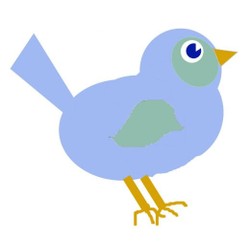I wrote articles at Hubpages. It was a great site for writers because the search engine love that emanated from the site and attached itself to each hub, ensured the best chance for any article to get promoted in the SERPs, beyond it's merited position, in the quickest time. This changed with the Google 'Farmer' or 'Panda' update. This change was not due to the algorithm change, but rather as a result of a misguided change in the fundamental structure of Hubpages as a site.
Hubpages now no longer transfers the search engine love it gained as a site to each of the articles that are now produced. What was the change? They split the site into thousands of sub-domains: one for each writer account.
Why does this make so much difference? My evidence comes from Market Samurai - if you use this tool and have articles on Hubpages check the figures in these columns in the SEO Competition section: IC (Index Count - the number of pages on the site indexed by Google); RDD (Referring Domains - the number of unique domains that point to the site); BLD (Backlinks to the Domain).
All are relevant to all search engine ranking algorithms. Before Hubpages changed to sub-domains all three of these parameters outranked most other sites with whom an article writer would be contending - almost as good as Wikipedia. Since the change, the numbers are purely those that relate to your sub-domain - unless you promote to extraordinary lengths, all the search engine love has disappeared.
So, what about Wizzley? They do not have sub-domains. What does that mean to an article writer? Well, we get all of the search engine love for the whole Wizzley domain attached to each of the parameters mentioned above. Great you say. I'll have a bit of that - my articles will hop to the top of the SERPs in no time.
Unfortunately, the writers at Wizzley have not done enough yet to achieve the levels of search engine love that Hubpages once enjoyed.
So what do we need to do to achieve the required goal?
Answer:
- Write more articles
- Promote the articles more vigorously
- Tweet every one of them that we read, and write - the most important. (And 'like' and '+' and submit them to social bookmarking sites).


















 Gold Barson 10/19/2017
Gold Barson 10/19/2017
 Creating My Own Websiteon 02/04/2021
Creating My Own Websiteon 02/04/2021
 Weights and Measures of Gold Barson 10/20/2017
Weights and Measures of Gold Barson 10/20/2017
 Types of Goldon 10/20/2017
Types of Goldon 10/20/2017


Comments
Why, thank you SM.
Here's a tweet thrown at ya! Great advice, as usual!
Mike - I shall endeavour to stay well. A curse indeed. #hashtags are very powerful - use them to your best advantage.
humagaia, Ah, yes I to understand the curse of knowledge, thanks for your tutelage in the use of #hashtags to promote articles.
Be well, Mike
Mike, as you know I am always willing to explain something I do not realize is not common knowledge, and that I have failed to explain sufficiently in any article. You are welcome always, to ask.
#hashtags are useful although there is less placed on them now, as tweet content is better utilised. That said, if a particular primary 'keyword' does not appear in the main text of a tweet (a title for instance) then a #hashtag with that word is a useful mechanism to attract access to the tweet (and the article URL) by facilities that create a link to, and therefore a backlink for, the article.
humagaia, Thanks for explaining the relevance of the wizzley hash tag when using the twitter button on our pages.
I have a better understanding why it is a good thing we tweet pages we not only read, but find of value. Credit to the wizzley community and writer.
Thanks for the explanation, sorry about taking so long to reply, my modem failed.
Best wishes, Mike
Mike, hi again! To make it a little less confusing (I hope). When you tweet from the button to the right on all Wizzley articles, you may notice that there is #Wizzley added to the tweet with your title and URL. Why is this done? So that people, and sites, can find tweets that are related to Wizzley, but might otherwise not have Wizzley in the title. It is a flag that can be seen and searched for. One of the benefits of this is that certain programs on the net pick up on these flags and create such things as online newspapers. These are created by individuals by sifting all the # and picking out which one(s) would be relevant to the type of paper they wish to create (automatically).
Should we have the time some of us could create such papers using # with the extensions I have suggested. #Wizzley is already available, so starting there would be sensible.
Hope this helps. Thanks for pointing out that I had been remiss in not explaining this.
Why tweet? I learned a great deal from this article on "why tweet". The hash tag thing is a bit confusing though.
Thanks for the info. Mike
Tweeted, + and all that.:)
Do you tweet your articles every day, I do - well nearly every day. That way the search engines know about each article. As they take social media into consideration now, it is imperative to keep them informed.
The main reason I tweet my articles regularly is to allow my new followers to have the chance to read it. Am I being big-headed thinking that they would want to read it? Why else would they be following me? They expect me to interact. What better way is there to do it?